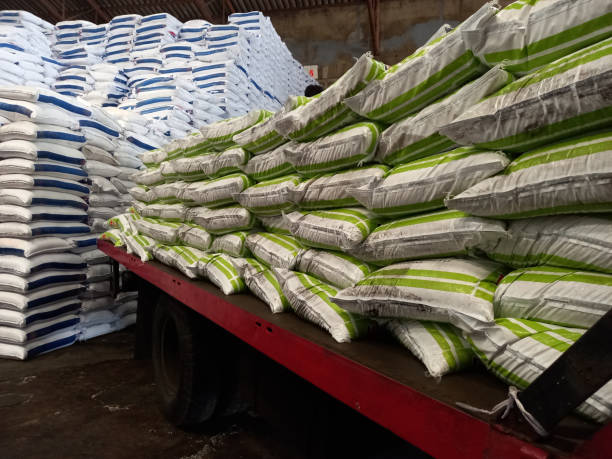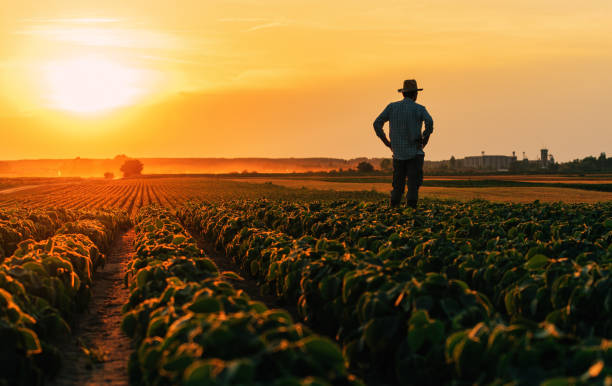Introduction
Agri Trade has become one of the strongest tools South Africa is using to expand its global presence, especially after President Cyril Ramaphosa’s recent diplomatic mission to Southeast Asia. Countries like Indonesia, Vietnam, and Malaysia play an increasingly important role in global food networks, and South Africa is working to build solid partnerships with them. These countries have growing economies, rising populations, and a need for reliable agricultural imports—exactly what South African exporters can supply. The visit highlighted the importance of cooperation in farming, food standards, logistics, and investment. It also showed how agriculture can support development, attract capital, and strengthen relationships between regions. By focusing on agriculture, South Africa hopes to reduce dependence on traditional markets and unlock new opportunities that support long-term economic growth. This mission marked a meaningful step in redefining South Africa’s strategy toward more diversified and stable trade relationships.
Agri Trade as a Driver of South African Export Growth
South Africa’s decision to prioritize Agri Trade with Southeast Asia reflects a clear focus on boosting export growth. For years, the country relied heavily on markets in Europe, the United States, and China. While these are still valuable partners, competition, regulations, and shifting global trends have encouraged South Africa to look for new areas of opportunity. Southeast Asia offers exactly that. The region’s booming populations, expanding middle class, and rising food demand create a perfect setting for export expansion. South Africa is well-positioned to supply fruit, livestock products, grains, wine, nuts, and various processed foods. Strengthening these export links can help stabilize farm income, grow agri-businesses, and ensure that South African products remain competitive in the global market. Accessing new markets also protects the country from sudden changes in older markets, such as tariffs or health restrictions, making trade more balanced and secure.
Agri Trade and Strengthening Government-to-Government Cooperation
A major outcome of the Southeast Asia tour was the strengthening of government cooperation. For Agri Trade to flourish, governments need to align regulations, open communication channels, and establish trade frameworks. During the visit, South Africa engaged directly with senior officials across Indonesia, Vietnam, and Malaysia to discuss agricultural standards, customs procedures, and investment rules. These conversations help remove obstacles that previously slowed down trade. They also build a level of trust that encourages long-term cooperation. Countries in Southeast Asia value reliable and predictable partners, and South Africa’s willingness to engage through diplomacy helps solidify that foundation. Improving state-to-state relationships reduces trade friction, speeds up approval processes for new products, and encourages smoother business operations for exporters and investors. As these relationships deepen, both sides benefit from more stable and efficient trade systems.
Agri Trade and Business Partnerships with Southeast Asian Industries
Beyond government-level discussions, South Africa is also working to build relationships with businesses in Southeast Asia. Companies across Indonesia, Vietnam, and Malaysia are expanding rapidly, especially those involved in food imports, distribution, and processing. These industries are searching for dependable suppliers who can ensure quality and consistency. South Africa’s agricultural sector fits well into this picture. The country’s fruit exporters, livestock producers, and processing companies have a strong reputation for meeting global standards. During the mission, South African business delegates held meetings with corporate leaders, importers, and chambers of commerce to explore partnerships. Many of these engagements focused on long-term supply contracts, logistics solutions, and joint ventures. By forming business-to-business relationships, South Africa strengthens its ability to integrate into regional supply chains. These partnerships allow companies to scale production, share technology, and explore new market segments across Asia.
Agri Trade and the Rising Demand for Premium Food Products
Southeast Asia’s rapid economic growth has led to a shift in consumer preferences, with increasing demand for premium food products. More households are buying imported fruit, high-quality meat, speciality grains, and branded goods. This trend supports South Africa’s strategy of offering competitively priced, high-standard agricultural products. During the visit, discussions centered around market opportunities for beef, lamb, poultry, citrus, apples, grapes, and wine. Many of these products are already popular among Asian consumers, and South Africa aims to expand its market share. With robust food-safety systems and established export protocols, the country can meet expectations for quality and consistency. As more Southeast Asian consumers seek healthier and trusted food options, South African producers have the chance to supply premium goods and secure a strong presence in supermarkets, restaurants, and wholesale markets across the region.
Agri Trade and Investment in Local Agro-Processing
One of the most promising aspects of South Africa’s mission is the potential for investment in local agro-processing industries. Investors from Indonesia, Malaysia, and Vietnam are showing interest in the African market, especially in areas where processing capacity can be expanded. Agro-processing adds value to raw products, creates jobs, and boosts rural economies. For example, processing meat, fruit, and grain into packaged goods increases export value and opens more profitable markets. South Africa’s agro-processing sector has strong potential but requires more investment in machinery, cold storage, and technology. International investors can provide this capital while benefiting from South Africa’s access to African markets and agricultural resources. Joint ventures in processing also support knowledge transfer, helping local industries adopt modern techniques. Boosting processing capacity creates a stronger agricultural value chain and supports long-term economic resilience.
Agri Trade and Removing Regulatory and Logistic Barriers
Regulation and logistics play a major role in shaping the success of cross-border agricultural trade. South Africa’s discussions with Southeast Asian partners focused on simplifying customs procedures, aligning food standards, and improving inspection processes. Many exporters face delays due to documentation issues, strict sanitary regulations, or misaligned certification requirements. By harmonizing these systems, both sides can reduce costs and improve trade efficiency. Logistics is equally important. Shipping routes between South Africa and Southeast Asia are long, and delays can affect perishable goods like fruit and meat. Improving cold-chain systems, port handling, and distribution networks ensures that products arrive in excellent condition. Collaboration in logistics and standards will make South African products more competitive and encourage more Southeast Asian importers to buy from South African suppliers. Efforts to reduce regulatory friction are essential to long-term trade growth.
Agri Trade and the Shared Commitment to Food Security
Food security is a common priority across Africa and Asia. As populations rise and climate change affects production, countries need reliable partners who can support long-term food needs. South Africa and Southeast Asian nations recognize the importance of stable supply chains and diversified sources of food. Strengthening agricultural partnerships allows both sides to address risks such as climate-related crop failures, rising prices, and global transport disruptions. Strategic cooperation ensures that essential food products remain available even during challenging periods. South Africa can supply seasonal fruit, grains, meat, and processed goods, while Southeast Asian countries provide investment, technology, and access to large consumer markets. This balanced relationship enhances regional food security and helps both sides plan for a more stable future. The shared goal of feeding growing populations reinforces the importance of reliable and long-lasting trade partnerships.
Agri Trade and the Role of Climate-Resilient Agriculture
Climate change poses a growing challenge for farming communities worldwide, making climate-resilient agriculture increasingly important. South Africa and Southeast Asian nations face rising temperatures, unpredictable rainfall, and increased pests and diseases. These challenges require new approaches to keep farms productive and protect food supplies. Cooperation in technology, water management, and sustainable practices offers a way forward. South Africa can benefit from Southeast Asia’s experience with greenhouse systems, irrigation technology, and efficient rice production. In turn, South Africa can share knowledge on drought-resistant crops, livestock management, and climate-smart farming methods. Joint agricultural research and pilot programs can help both regions prepare for climate-related risks. Incorporating climate resilience into trade relationships ensures that agricultural cooperation remains strong despite environmental pressures, supporting long-term stability.
Agri Trade and Expanding Opportunities for Small-Scale Farmers
Small-scale farmers are central to agriculture in South Africa, and expanding Agri Trade offers new opportunities for them. Increased demand from Southeast Asia can encourage local supply chains to grow, creating space for small farmers to join export networks. When processors, exporters, and logistics companies expand operations, they require more raw produce from farmers of all sizes. With proper support—such as training, financing, and infrastructure—small-scale farmers can benefit from new markets. Export-driven growth encourages higher production standards, better equipment, and improved farming practices. This leads to better yields, higher incomes, and stronger rural communities. Ensuring that small-scale farmers are included in international trade partnerships helps create a more equitable agricultural sector. As South Africa strengthens its agricultural ties withAsia, inclusive development becomes essential for long-term success.
FAQs
1. How does Agri Trade help South Africa diversify its export markets?
It opens new routes in Southeast Asia, reducing reliance on older markets and spreading economic risk more evenly.
2. What role does Agri Trade play in strengthening business partnerships?
It connects South African exporters with Asian importers, leading to long-term contracts and expanded market access.
3. Why is Agri Trade important for small-scale farmers?
It creates opportunities to join export value chains, increasing income and supporting rural development.
Conclusion
South Africa’s efforts to strengthen Agri Trade partnerships with Southeast Asia reflect a forward-looking strategy for economic growth and food security. By collaborating with Indonesia, Vietnam, and Malaysia, the country gains access to new markets, investment opportunities, and technological advancements. These relationships support a stronger agricultural value chain, from farmers to exporters and processors. As global demand for high-quality food continues to rise, South Africa’s focus on agriculture positions it as a trusted supplier and strategic partner across regions. With long-term cooperation and innovation, Agri Trade can play a key role in shaping a sustainable and prosperous future for South Africa’s economy.




